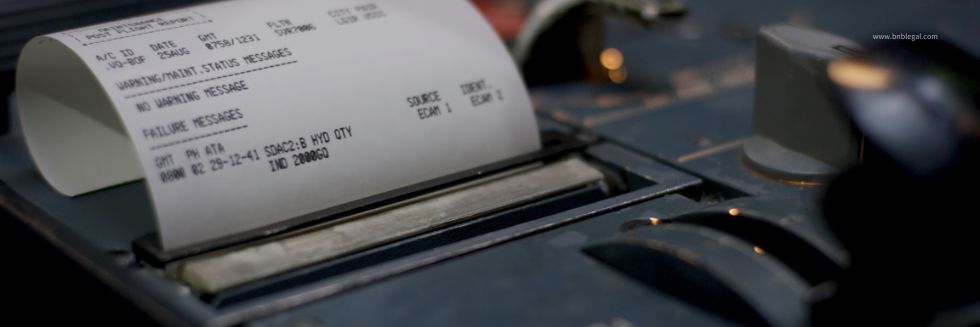The Consumer Disputes Redressal Commission in Ernakulam recently ruled that providing inadequately printed bills on inferior-quality paper or with substandard ink qualifies as either ‘deficiency of service’ or an ‘unfair trade practice.’
The bench comprising President D.B. Binu and Members V. Ramachandran and Sreevidhia T.N. referenced the ruling in Tata Chemicals Ltd. vs Skypak Couriers Pvt. Ltd. (2001). This case emphasized the significance of including terms and conditions along with other details in bills to safeguard consumers’ rights to be adequately informed about the prices of products or services they acquire or rent.
It further stated that this practice also furnishes consumers with documentary proof to substantiate claims before Consumer Commissions, confirming their actual purchase of products or engagement of services from a particular trader or service provider.
The bench observed, “In many countries, including India, consumer protection laws ensure the right to a durable and legible bill or receipt when making purchases, which includes clear and readable details of the transaction, durability against wear and tear, comprehensive itemization including prices and charges, clear indications of taxes and surcharges, information on return policies and warranties, recommendations for retention period, options for electronic receipts, and support from consumer protection authorities in case of disputes or issues.”
The individual filing the complaint, who is a lawyer by profession, bought an HP Laptop that began encountering problems within one month of the purchase. The complainant asserted that, during a service attempt, only the keyboard was replaced under warranty. However, subsequent issues persisted and the device’s performance deteriorated further within a few months.
The complainant submitted that his requests for replacements were also rejected by the service center citing a 14-day replacement policy.
The complainant contended that the laptop should fall within the one-year warranty period and asserted that the denial of a replacement was unlawful.
Consequently, he requested compensation of Rs. 1,00,000/- for the incurred damages, encompassing loss of work, the inability to attend court procedures, and the expenses associated with traveling to the service center during office hours. Additionally, he sought an extra sum of Rs. 25,000/- to cover the costs related to the legal proceedings.
Observing that the initial tax invoice issued by the opposing party was unreadable, the Commission pointed out that in July 2019, the Kerala State Department of Consumer Affairs had issued a directive requiring all government, public, and private entities to furnish bills that are both durable and easy to read.
Additionally, it indicated that invoices printed on substandard paper or with inferior ink might impede customers from registering complaints about services or products due to the bills being susceptible to damage or fading. The issuance of poorly printed invoices could potentially be considered a ‘deficiency of service’ and an ‘unfair trade practice’ under the Consumer Protection Act, 1986.
Consequently, the Commission identified that the directive had established a requirement for all government, public sector, and private organizations in Kerala to issue bills that are printed on high-quality paper using superior ink, thereby guaranteeing their durability and readability.
It further mentioned that according to the recent addition of clause (vii) in Section 2(47) of the Consumer Protection Act, 2019, it is now explicitly mandated that while furnishing a bill is essential, it must be issued in accordance with the specifications outlined by the Central Government.
Moreover, the Commission highlighted that Rule 5 of the Consumer Protection (General) Rules, 2020, outlines the essential components of every invoice, bill, cash memo, or receipt for goods or services. These mandatory elements encompass the seller’s name and address, a distinctive serial number that should remain unaltered, date of issue, consumer’s name, description of goods or services, quantity of goods, shipping address, taxable value, discounts, tax rate, seller’s signature (or authorized representative’s), customer care contact details, and the total price with a comprehensive breakdown.
Therefore, the Commission found the present case to be a clear deficiency in service and unfair trade practice.
The forum directed Hewlett-Packard Global Soft PVT Ltd. to replace the complainant’s faulty laptop with a new one or to provide the full purchase price to the complainant in the alternative.
Furthermore, it instructed the opposing parties to remit a sum of Rs. 50,000/- as compensation for the deficiencies in service and unfair trade practices they engaged in. This amount was intended to address the mental distress, physical hardships, damages (including loss of work), and inconvenience experienced by the complainant. Additionally, they were directed to pay Rs. 20,000/- to cover the costs associated with the legal proceedings.






